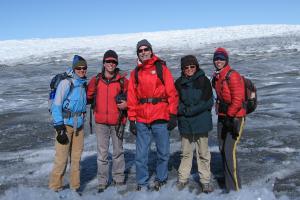
Arctic Experiential Learning Fund
Help make hands-on learning possible for tomorrow's Arctic scholars.
A young scientist takes on a valuable research opportunity
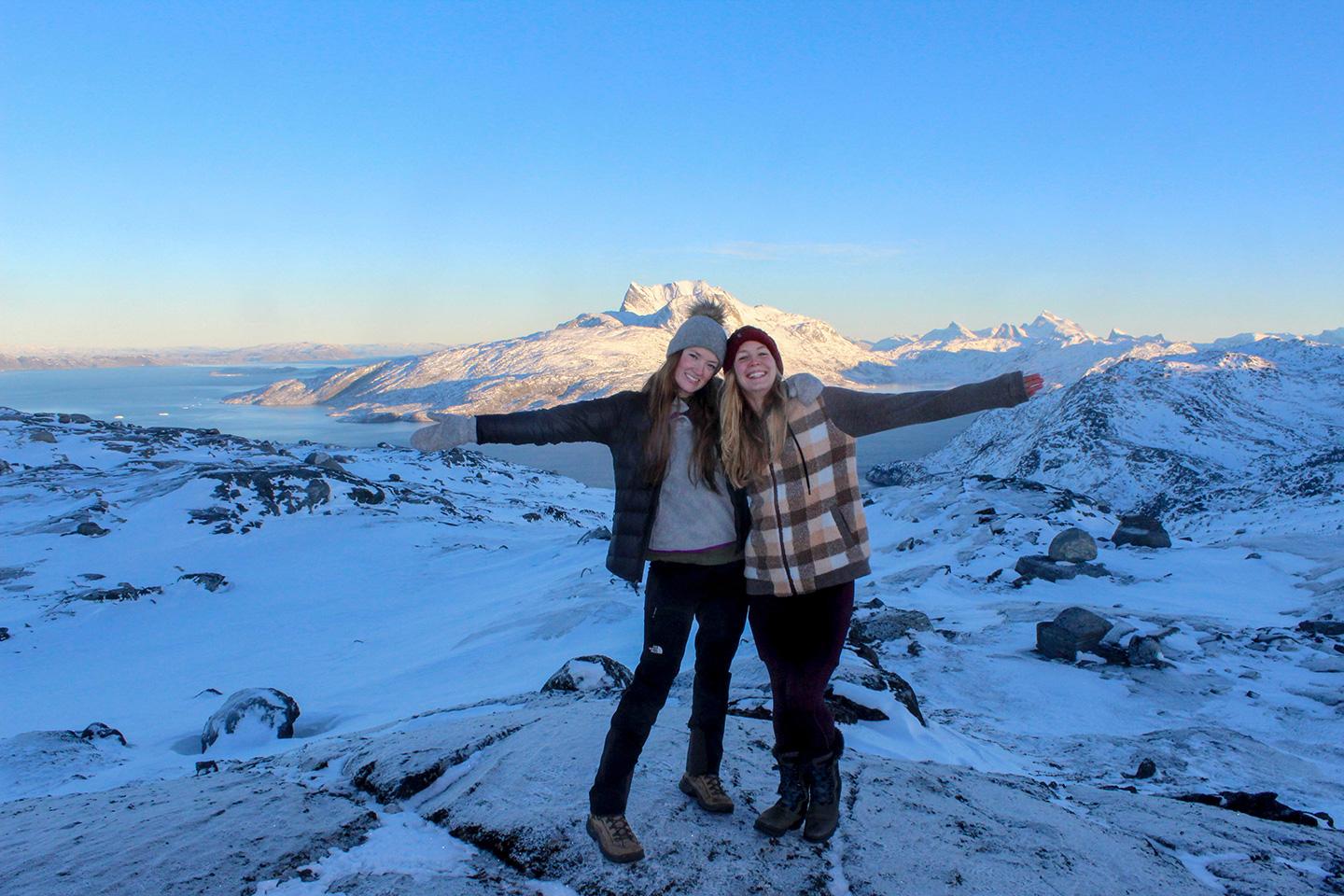
Ali Prevost-Reilly ’21 works with scientists in Greenland for a deeper understanding of the effects of climate change.
Ali Prevost-Reilly ’21 had always dreamed of doing research in the Arctic. When the Seattle native was looking at colleges, she read about Institute of Arctic Studies Director Ross Virginia’s work on vegetation and soils in Greenland—and she was hooked.
“It was clear to me Dartmouth would be an awesome place to go to get hands-on experience in the far North,” says Ali.
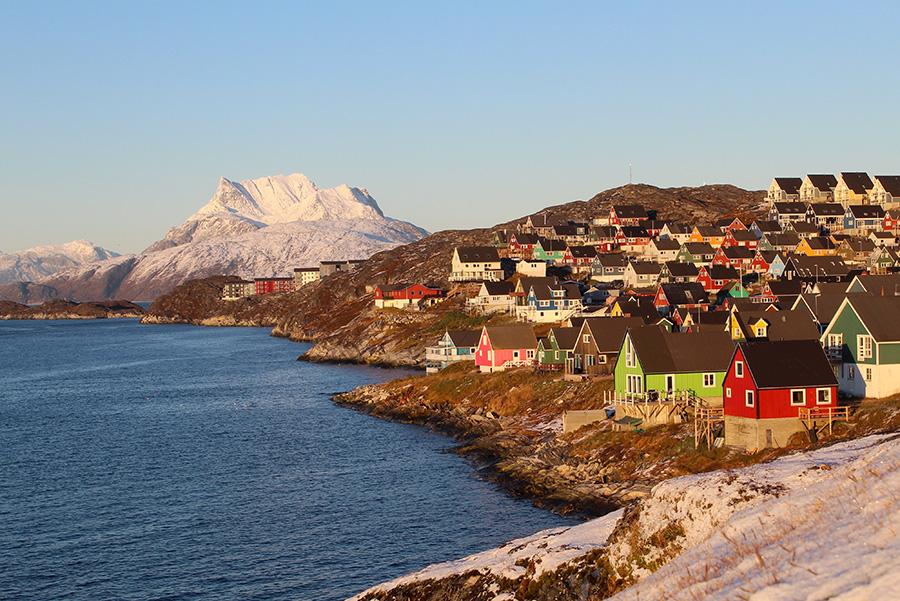 In her sophomore year, Ali took part in Dartmouth’s student exchange program with the University of Greenland. She took courses in international human rights law and Indigenous rights and met students from 15 different countries. “It was an incredible experience and an eye-opener for me to see how Americans are perceived by people all over the globe.”
In her sophomore year, Ali took part in Dartmouth’s student exchange program with the University of Greenland. She took courses in international human rights law and Indigenous rights and met students from 15 different countries. “It was an incredible experience and an eye-opener for me to see how Americans are perceived by people all over the globe.”
Meeting students from Greenland “made a strong impression,” she says. “Scientists talk a lot about climate change in Greenland and other areas of the Arctic, but the people who live there are not acknowledged to the extent they should be. They have immense knowledge about their environment, and science stands to benefit greatly from their insights.”
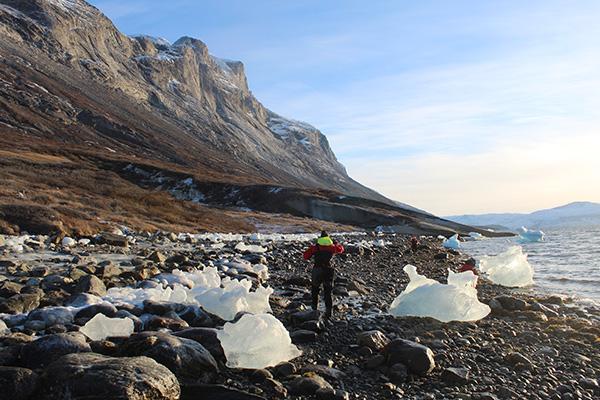
In addition to coursework, Ali traveled with scientists to Nuup Kangerlua, a nearly 100-mile-long fjord on the western coast of Greenland, studying how climate change affects the migration and life cycles of cod and redfish. The cod she studied had tracking devices, allowing her to follow their movement and determine how deep they were swimming. Results from this research informs more efficient and sustainable fishing practices.
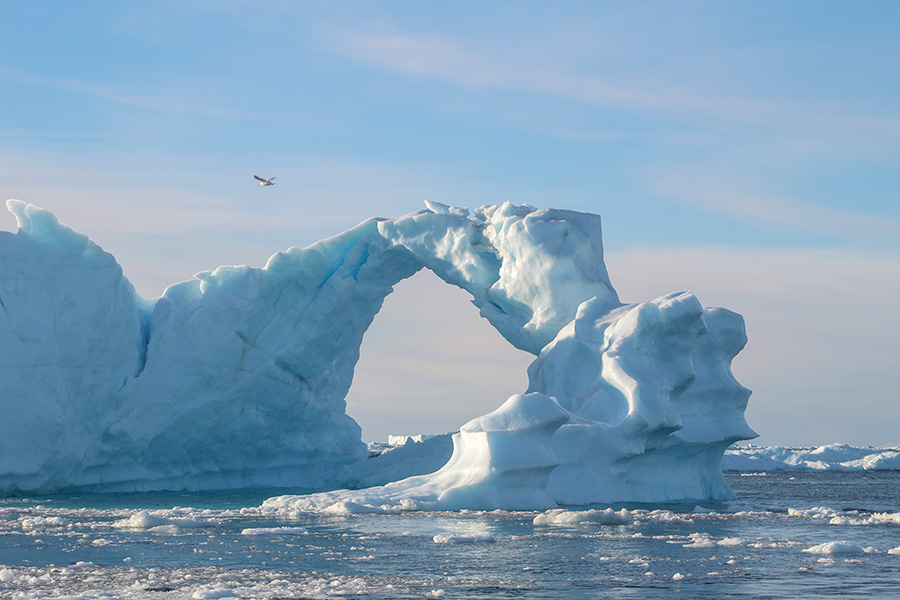 Ali continues to study climate change at Dartmouth with Ross Virginia and Lauren Culler, a research assistant professor in environmental studies. In one project, they are examining the effects of climate change on mosquito reproduction in Greenland. By studying how many mosquitoes in a certain area are feeding and how many eggs they produce, they hope to better understand the effect mosquitoes are having on Greenland wildlife.
Ali continues to study climate change at Dartmouth with Ross Virginia and Lauren Culler, a research assistant professor in environmental studies. In one project, they are examining the effects of climate change on mosquito reproduction in Greenland. By studying how many mosquitoes in a certain area are feeding and how many eggs they produce, they hope to better understand the effect mosquitoes are having on Greenland wildlife.
In another project, she studies variation in climate change in five towns across Greenland. “Doing this cross-site comparison is novel research, very exciting,” she says.
Outside the lab, Ali is an active rock climber with the Dartmouth Mountaineering Club, where she leads beginner and intermediate trips for new climbers.
“Getting those climbing skills under my belt and leading trips has been awesome,” she says. “It’s made me a stronger teacher, and taught me how to work with other leaders in the club and adapt to their different approaches.” In spring 2020, she will co-lead a climbing trip to the Mount Lemmon region in Arizona.
Ali is also excited about her future. She plans to either pursue medicine or continue research in ecology and the natural sciences.
The Institute of Arctic Studies at Dartmouth has long been an international leader in research and education on polar environmental change and Arctic policy issues. It is committed to preparing the next generation of scientists and engineers to tackle the challenges of global climate change.
Today, Arctic research and education have never been more in demand and are key components of The Call to Lead campaign. Dartmouth plans to grow its Institute of Arctic Studies by recruiting faculty and expanding its interdisciplinary research into climate science, ecosystem change, geopolitics of the North, and Indigenous issues. This expansion will help provide valuable research opportunities, like Ali’s, to more undergraduate and graduate students.
“Whichever career decision I make, doing work that helps people is very important to me.”